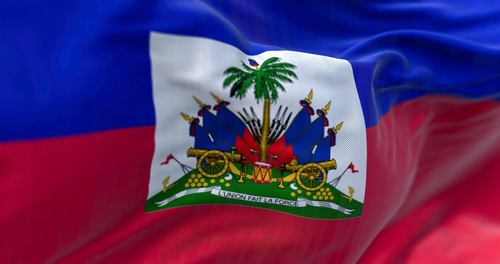Every January 1st, while much of the world recovers from New Year’s Eve festivities, Haitians and their diaspora communities come alive with a celebration of immense pride and historical significance. Haiti Independence Day is more than just a national holiday; it’s a powerful commemoration of freedom, resilience, and the birth of the world’s first free Black republic. As we look toward January 1, 2026, let’s explore the deep-rooted traditions and vibrant culture that make this day so special.
The Story of Freedom: History of Haiti Independence Day
The journey to Haitian independence was long and arduous. It began with the first major slave revolt in 1791, a fiery and organized uprising that sparked a 13-year conflict known as the Haitian Revolution. Led by heroic figures like Toussaint Louverture, Jean-Jacques Dessalines, and Alexandre Pétion, enslaved and free people of color fought against French colonial rule and the brutal system of slavery.
Their struggle was a landmark event in world history. On January 1, 1804, Dessalines officially declared Haiti an independent nation, making it the first country to be founded by former slaves and the second republic in the Americas, after the United States. This declaration was a symbol of hope and a beacon of liberty for oppressed people everywhere.
How Haitians Celebrate Independence Day Today
Haiti Independence Day is celebrated with a blend of solemn remembrance and joyful festivities. Traditions are passed down through generations, connecting Haitians worldwide to their shared heritage.
Soup Joumou: A Taste of Freedom
The centerpiece of any Haiti Independence Day celebration is Soup Joumou, a rich and hearty pumpkin soup. Under French rule, enslaved Haitians were forbidden from eating this soup, as it was considered a delicacy reserved for the colonizers. After gaining independence, Jean-Jacques Dessalines declared that everyone would eat the soup to celebrate their newfound freedom.
Today, making and sharing Soup Joumou is a cherished tradition. Families gather to prepare the soup, which often includes pumpkin, beef, potatoes, pasta, and vegetables. It’s a dish that warms the soul and serves as a delicious, tangible symbol of liberation and equality.
Music, Dance, and Community
The sounds of celebration fill the air on January 1st. In Haiti, streets come alive with parades, traditional music like rara and compas, and dancing. It’s a day for national pride, with the Haitian flag displayed prominently.
In diaspora communities from Miami and Montreal to Paris, Haitians host community gatherings, parties, and cultural events. These celebrations are a way to honor their roots, share their history with younger generations, and maintain a strong connection to their homeland. Families visit each other, share meals, and reflect on the sacrifices of their ancestors.
Evolving Traditions
In recent years, younger generations have used social media to share their celebrations globally. Hashtags like #HaitiIndependenceDay and #SoupJoumou trend as people post pictures of their family feasts and share messages of pride. This digital connection has helped strengthen the bonds of the Haitian diaspora and introduced the holiday’s significance to a wider audience, ensuring the story of Haitian freedom continues to inspire people around the world.
Frequently Asked Questions (FAQ)
What is the most important tradition on Haiti Independence Day?
The most important and universally observed tradition is the preparation and consumption of Soup Joumou. This pumpkin soup symbolizes the end of slavery and the dawn of freedom for all Haitians, making it a powerful and unifying part of the celebration.
How is Haiti Independence Day different from New Year’s Day?
While it falls on January 1st, Haiti Independence Day is primarily a celebration of national liberation. While it carries the hopeful spirit of a new year, its focus is on commemorating the country’s history, honoring revolutionary heroes, and celebrating the cultural identity and resilience of the Haitian people.
Why is Haiti’s independence so significant?
Haiti’s independence in 1804 was a groundbreaking historical event. It established the world’s first free Black republic, founded and governed by formerly enslaved people. This victory challenged the institution of slavery globally and became a powerful symbol of Black liberation and self-determination that resonates to this day.
How can non-Haitians respectfully observe the day?
Non-Haitians can respectfully observe the day by taking the time to learn about Haitian history and culture. Supporting Haitian-owned businesses, trying to make or buy Soup Joumou from a local Haitian restaurant, and listening to Haitian music are all great ways to show appreciation and solidarity.
